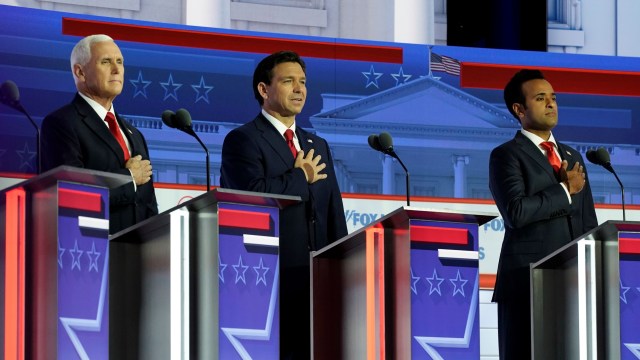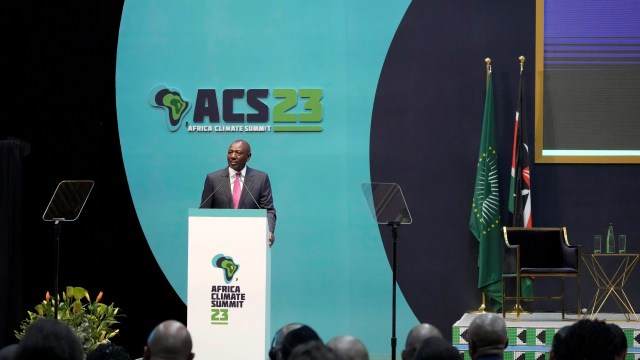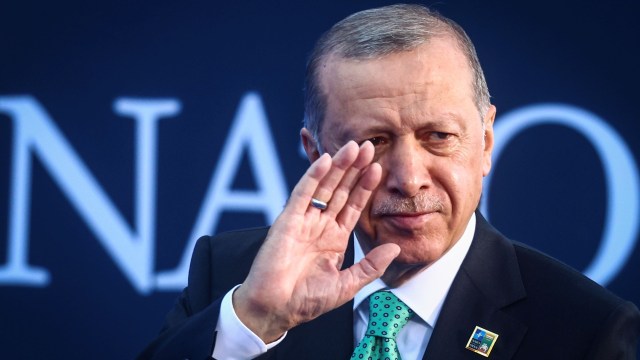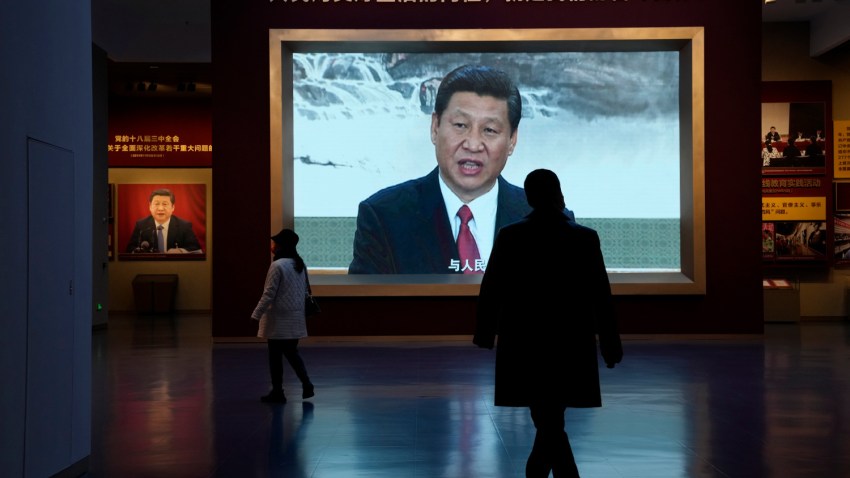Today at WPR, we’re covering GOP calls for the U.S. to invade Mexico and African governments’ endorsement of carbon offset markets.
But first, here’s our take on today’s top story:
China: Defense Minister Li Shangfu, who has not been seen in public in weeks, is under investigation for corruption and will likely be removed, the Washington Post reports. His dismissal would be the latest in a series of high-level purges and comes less than two months after Qin Gang was removed as foreign minister under similar circumstances.
Our Take: As with virtually everything about the Chinese government and Communist Party, the true causes of Li’s absence from the public eye and expected dismissal are opaque at best. Corruption charges against Chinese officials are often accompanied by political overtones, making it difficult to tell whether an investigation is due to actual wrongdoing or simply the most expedient way to sideline a rival or threat.
Get the Daily Review sent straight to your inbox every weekday.
As a result, it’s also difficult to tell what this series of purges could mean for China and President Xi Jinping going forward. Two things, however, stand out:
- High-level dismissals for corruption had seemed to wane in recent years, making this quick succession of them—particularly of two high-profile Cabinet officials—noteworthy.
- The timing of these dismissals is peculiar, considering that just last year Xi was considered to have fully consolidated his hold on power at the Communist Party Congress, where he was named to an unprecedented third term as chairman.
These top-tier purges also come at a time Beijing is facing a series of challenges, including an economic slowdown and concerted efforts by the U.S. and Europe to counter China’s rise. That raises the possibility that Xi’s grip on power is not as solid, nor as uncontested, as many believed. Without more information, however, it would be rash to jump to that conclusion.


GOP Calls to Invade Mexico Are More Than Just a Political Stunt
In the run-up to the 2024 U.S. presidential election, numerous candidates vying for the Republican nomination have called for the U.S. to use military force against Mexico in response to the “crisis” at the border and the flow of the illegal drug fentanyl into the United States.
For the current GOP candidates, calls to essentially invade Mexico have the twin benefits of making them look tough while also potentially appealing to Republican voters who were drawn to Trump’s “Build the Wall” campaign mantra in 2016. But as columnist Paul Poast writes, these calls also betray three sad truths about U.S. foreign policy generally, and Republican foreign policy in particular.
Carbon Markets Aren’t the Answer to Africa’s Climate Finance Problem
The Africa Climate Summit, which wrapped up in Kenya last Wednesday, was an effort to forge a harmonized approach to the continent’s negotiating stance on climate diplomacy ahead of the U.N. COP28 Climate Change Conference in November.

Indeed, the summit concluded with significant momentum, resulting in an impressive $23 billion in grants and commitments for green growth as well as mitigation and adaptation initiatives across Africa from a variety of stakeholders.
However, for many observers, these achievements were overshadowed by concerns, particularly over the endorsement by African governments of market-based schemes like carbon credits as a way out of the continent’s climate finance quandary, writes Zikora Ibeh.

This week, we asked: U.S. President Joe Biden has framed competition with China as part of a larger global battle between democracy and autocracy. Earlier this week, however, Biden visited Vietnam, a repressive dictatorship, to shore up regional support to counter China. Should the U.S. partner with non-democracies in its efforts to counter China?
The results? 70 percent of respondents said “Yes.”
Thanks to everyone who answered the poll.

The Biden administration has imposed sanctions on five Turkish trading and shipping companies, accusing them of helping Russia evade sanctions and supporting Moscow in the war in Ukraine. The sanctions come just a few weeks before Turkish parliament reconvenes, at which point Washington is hoping Ankara will ratify Sweden’s NATO membership bid.
At the NATO summit in July, Turkish President Recep Tayyip Erdogan said he would support Sweden’s accession, a move viewed as part of a larger foreign policy pivot back toward the West. Still, as Borzou Daragahi wrote at the time, Erdogan’s foreign policy moves are rarely so simple.

Erdogan’s Foreign Policy Pivot Is All About Domestic Politics
July 24, 2023 | Turkish President Erdogan’s foreign policy moves almost always have a domestic politics angle. His pivot back to the West is no exception. Read more.
Zambian President Hakainde Hichilema met with Chinese President Xi Jinping in Beijing today, where the two sides agreed to upgrade their ties. Xi said China hopes to expand cooperation and encourage more imports from Zambia, among other displays of support.
Notably absent from the two sides’ joint statement, however, was any mention of debt agreements. Zambia’s debt profile—including what it owes to China, reported to be its single, largest creditor—has long attracted international attention. As a result, and amid what some have described as a “debt pandemic” in the Global South, China has faced international pressure to consider debt forgiveness or restructuring.
Zambia’s IMF Bailout Comes With Painful Conditions
Sept. 9, 2022 | Zambia has agreed to a $1.3 billion bailout with the IMF that is intended to bolster the debt-laden country’s macroeconomic stability. Read more.

That’s all for today’s Daily Review. Coming up, we’re covering Brazil’s G-20 presidency and Russia-Armenia ties.
Have a great day,
Jakob Cansler
More From WPR
- Isabella Massa and Samory Toure on the SDG financing gap.
- Frida Ghitis on Georgia’s EU-Russia dilemma.
- Michael Pettis on China’s economic slowdown.
- Alexander Clarkson on far-right historical revisionism in Germany.

